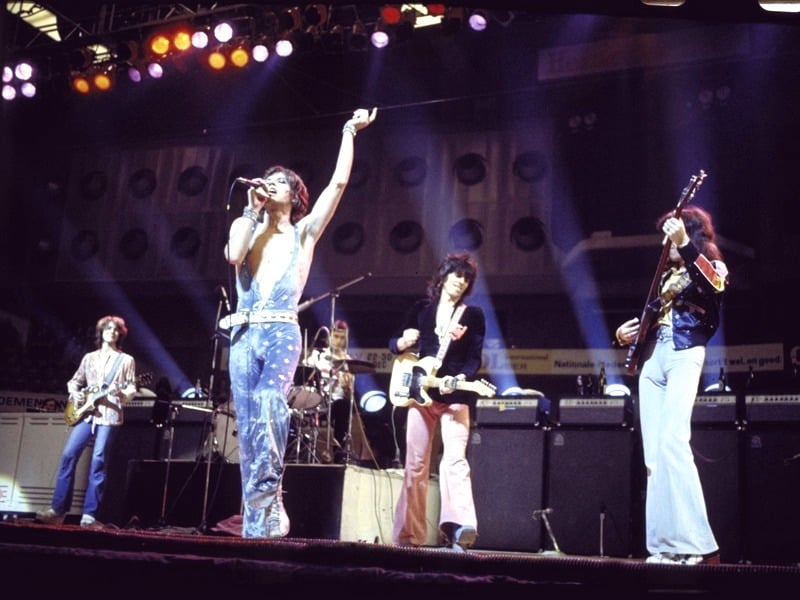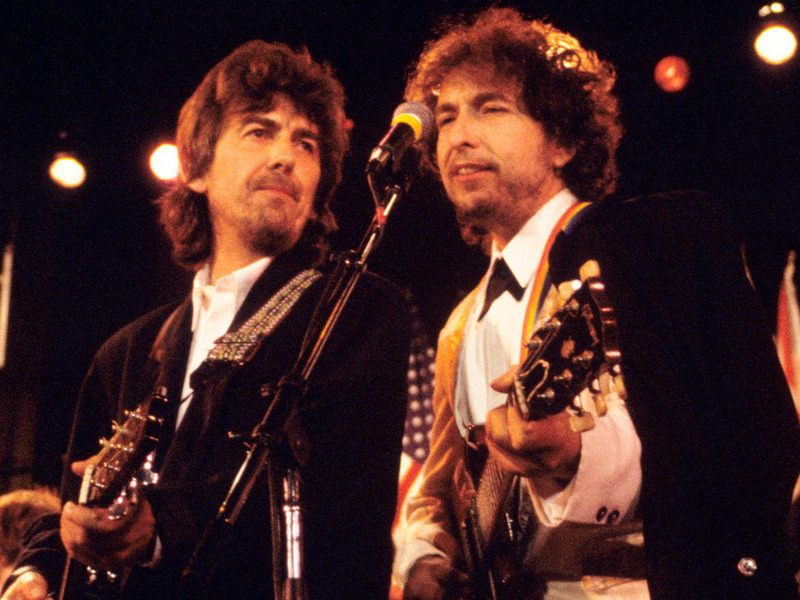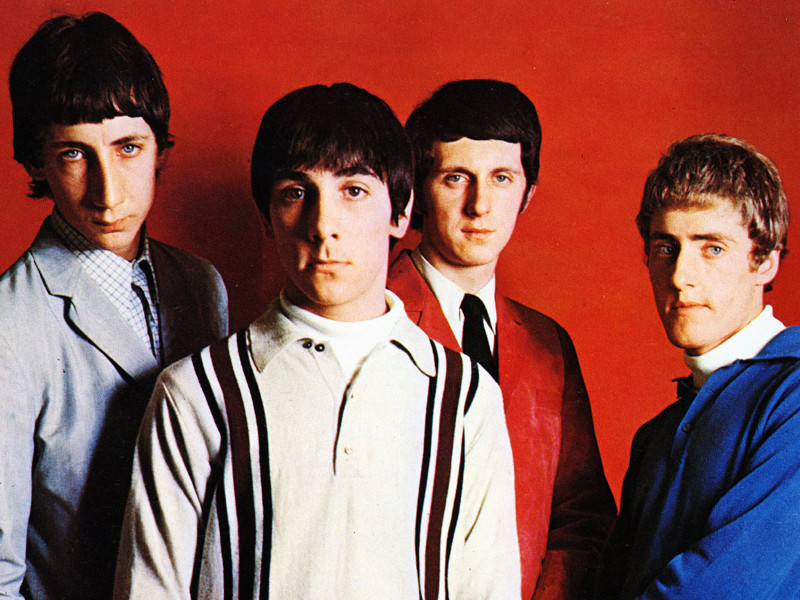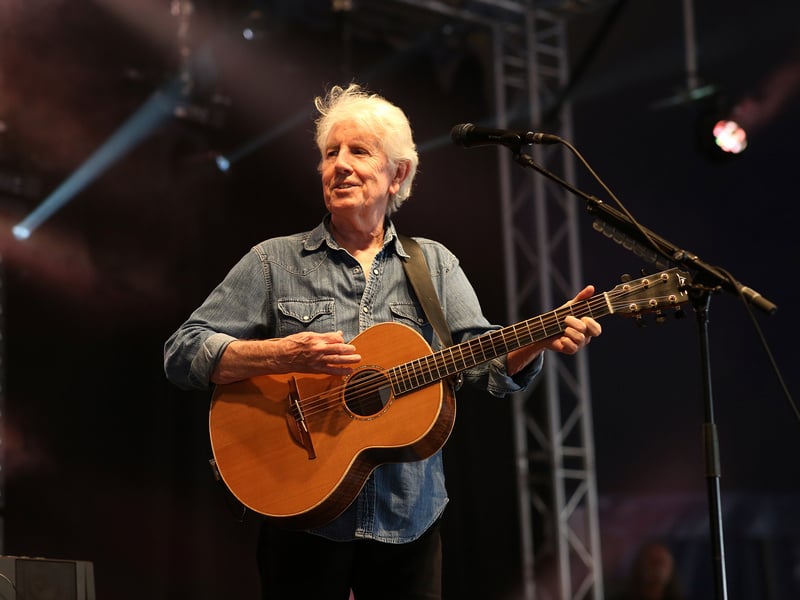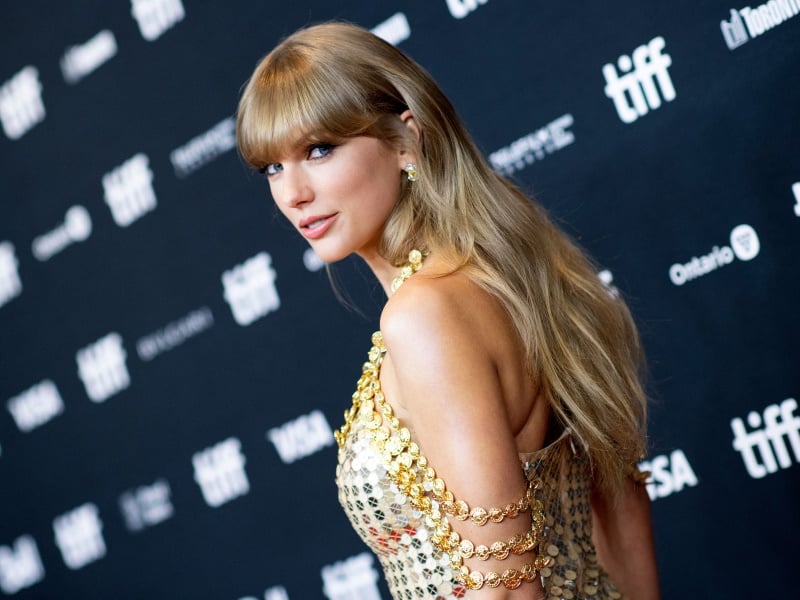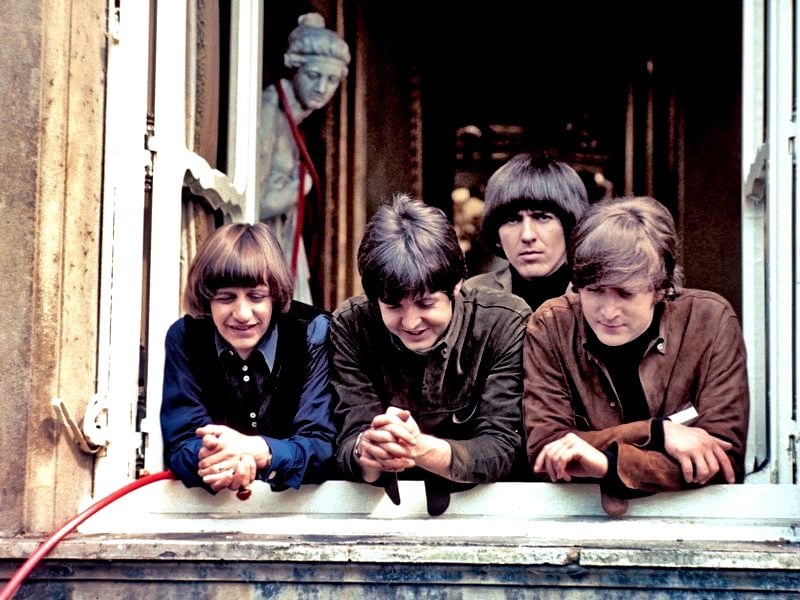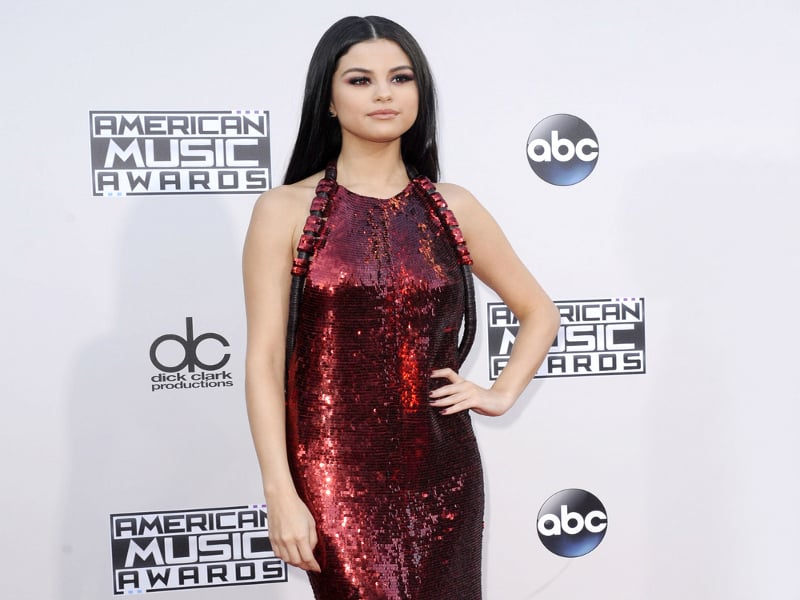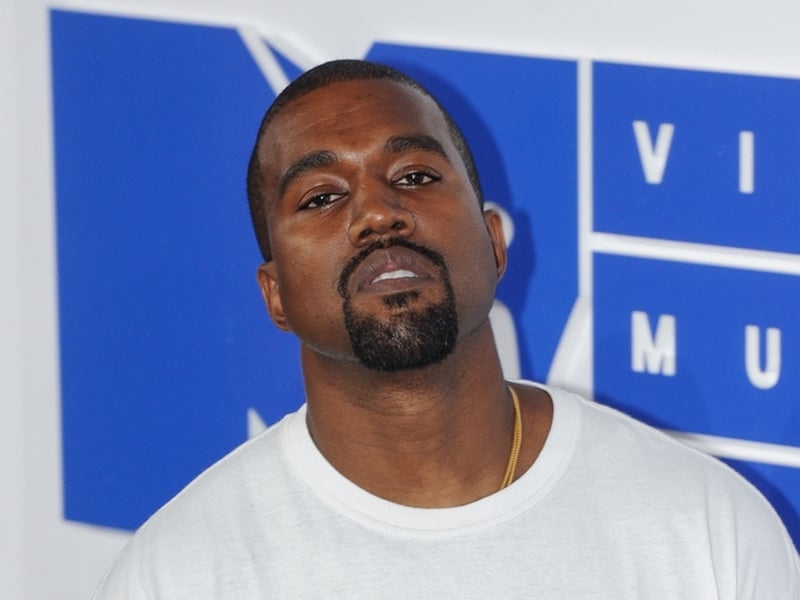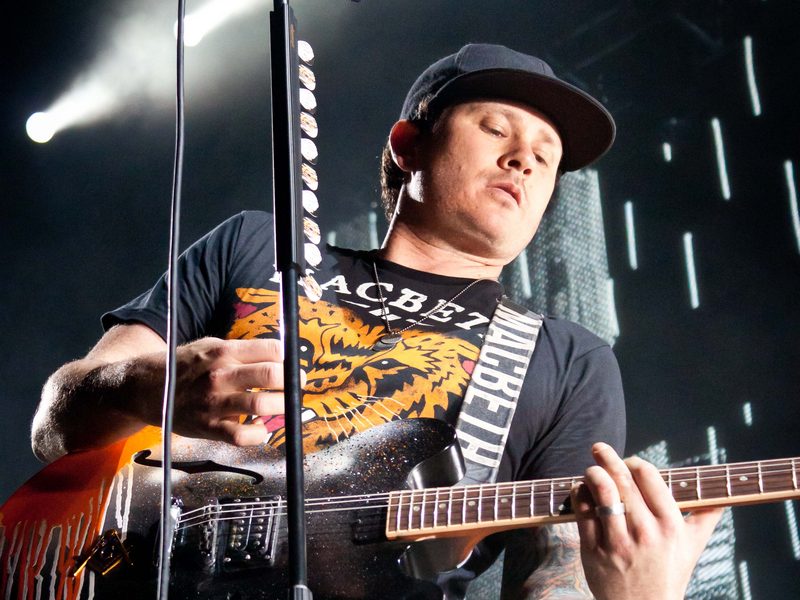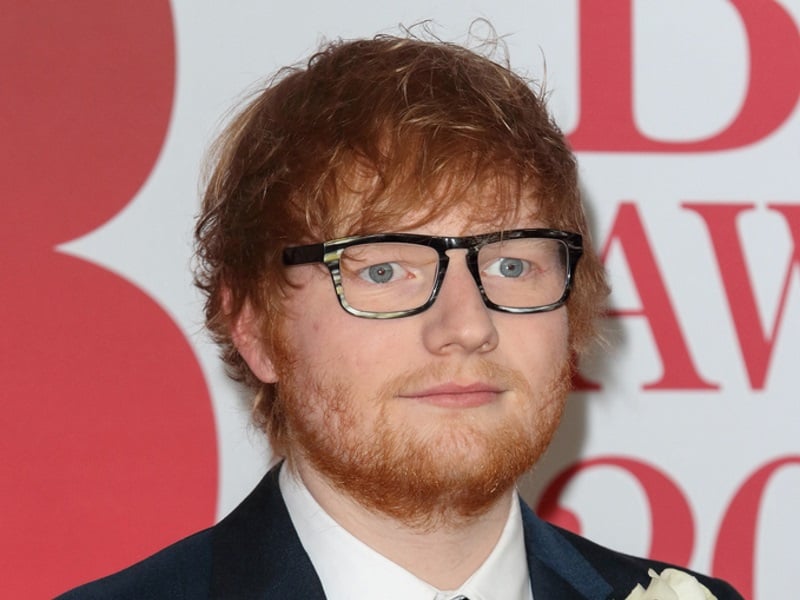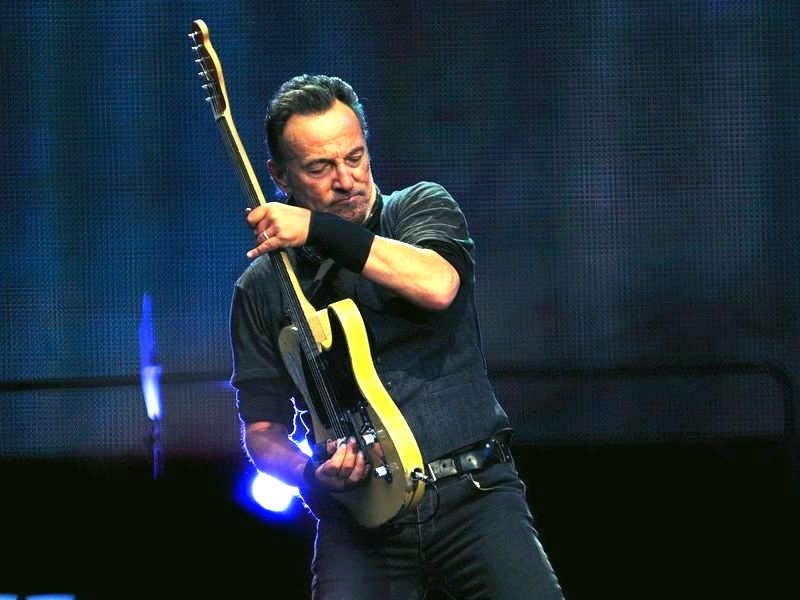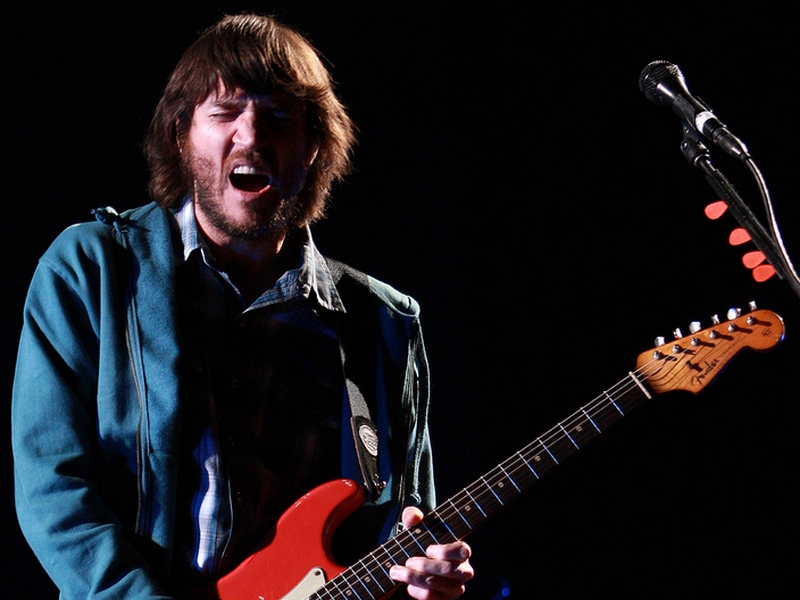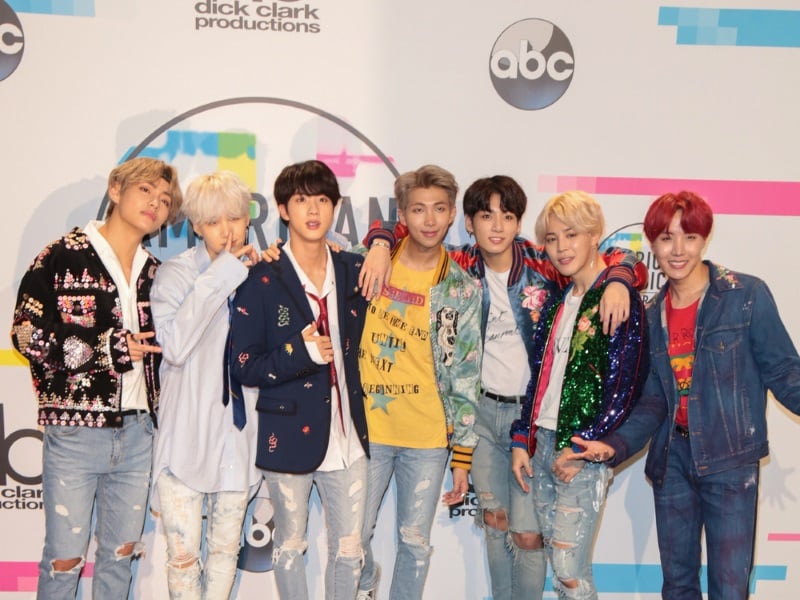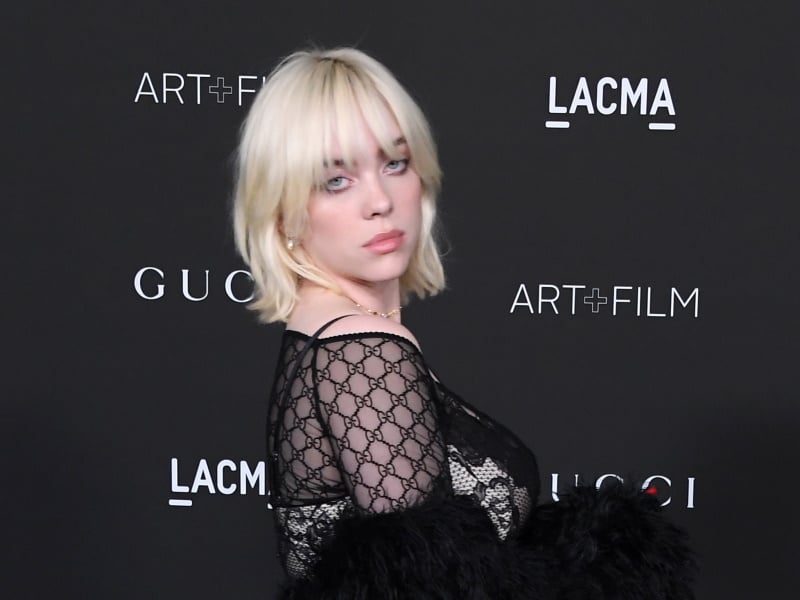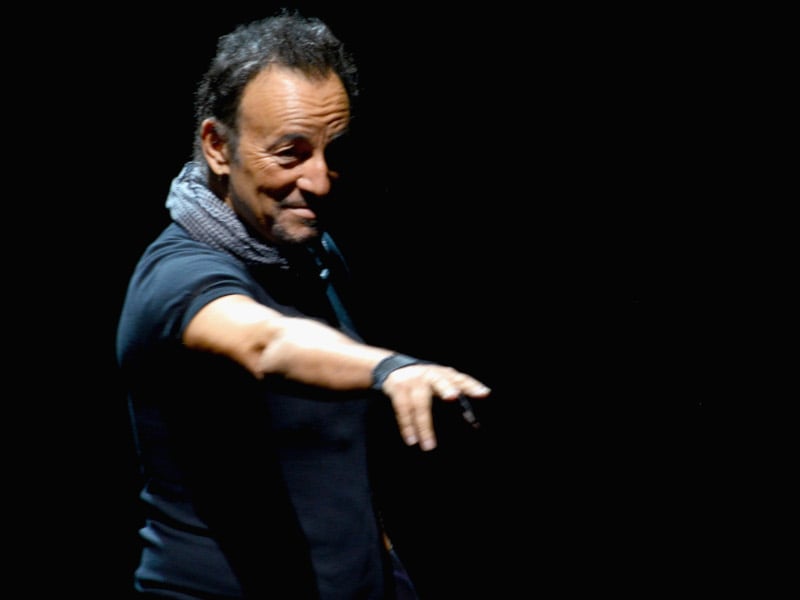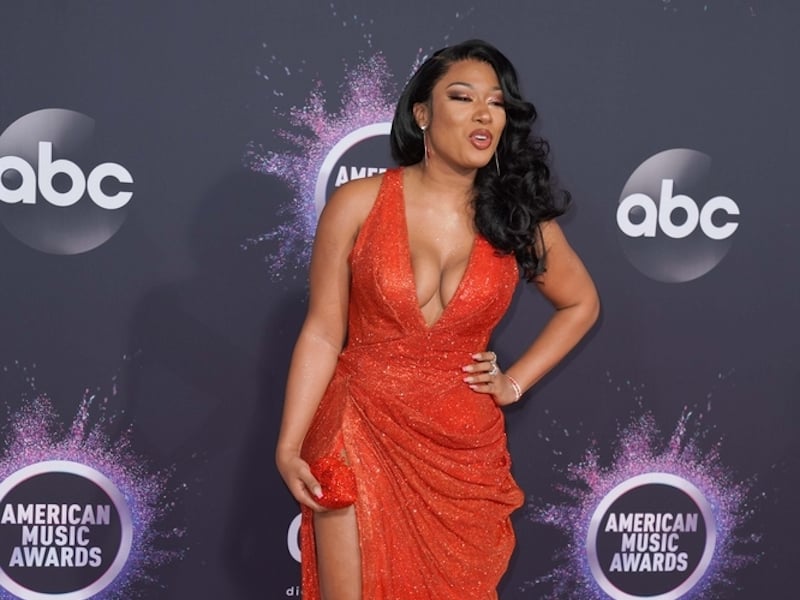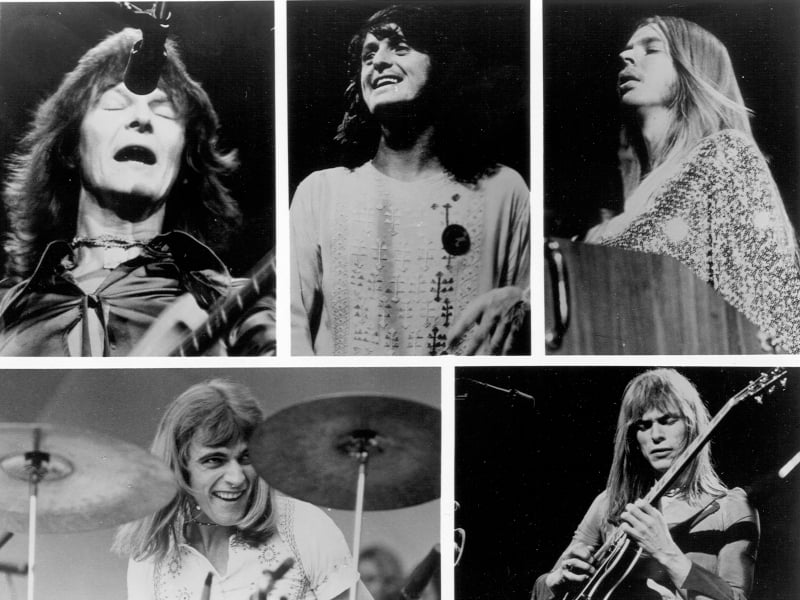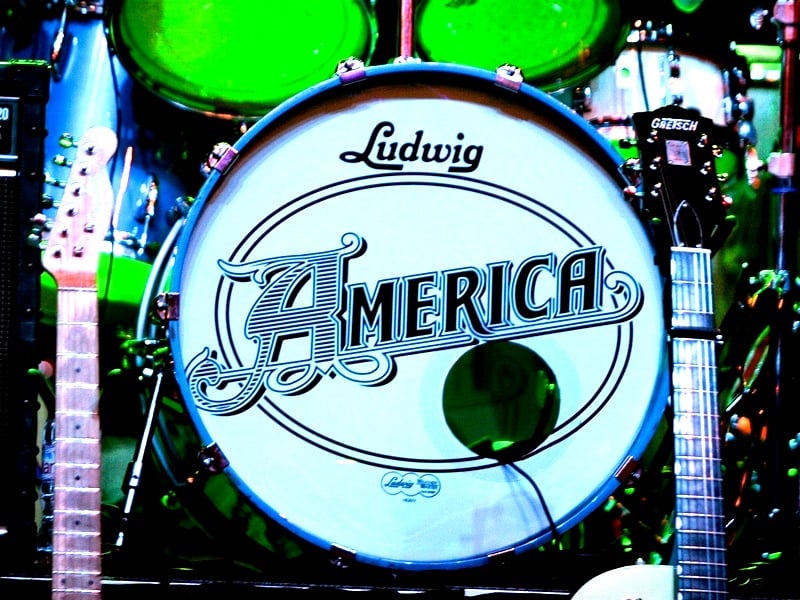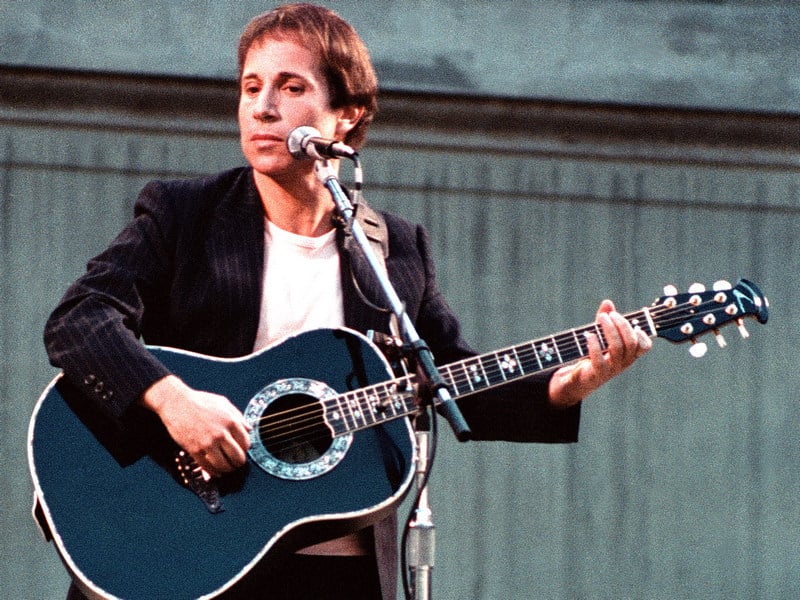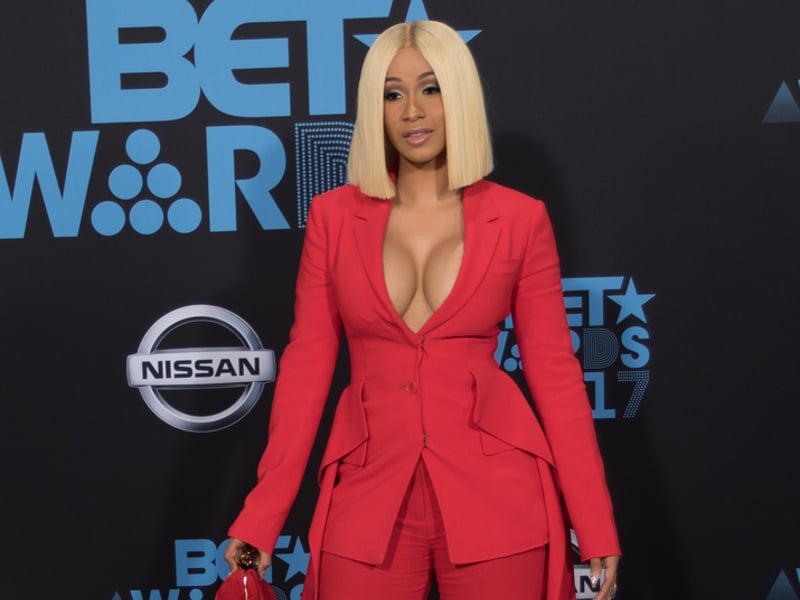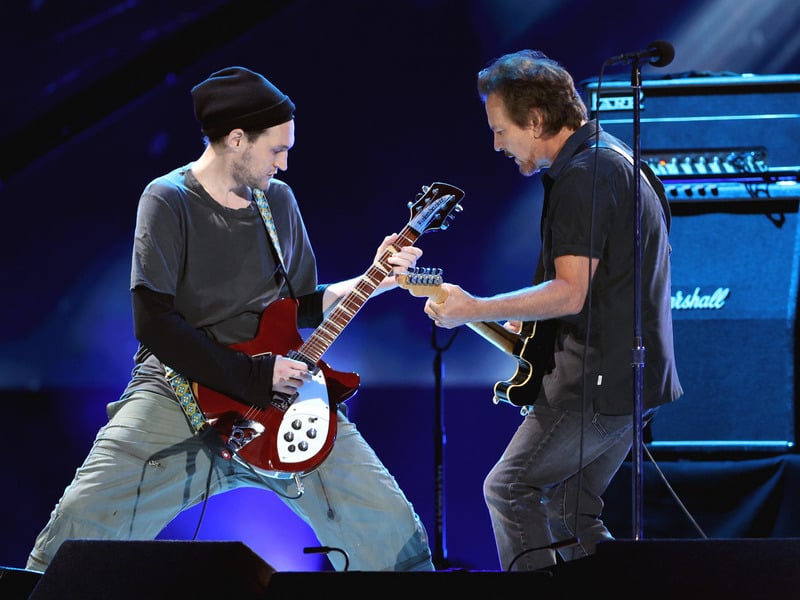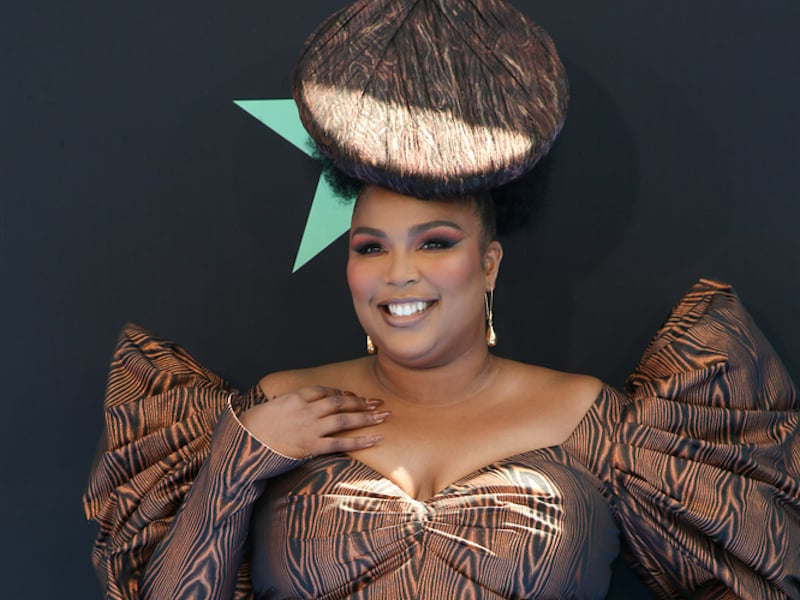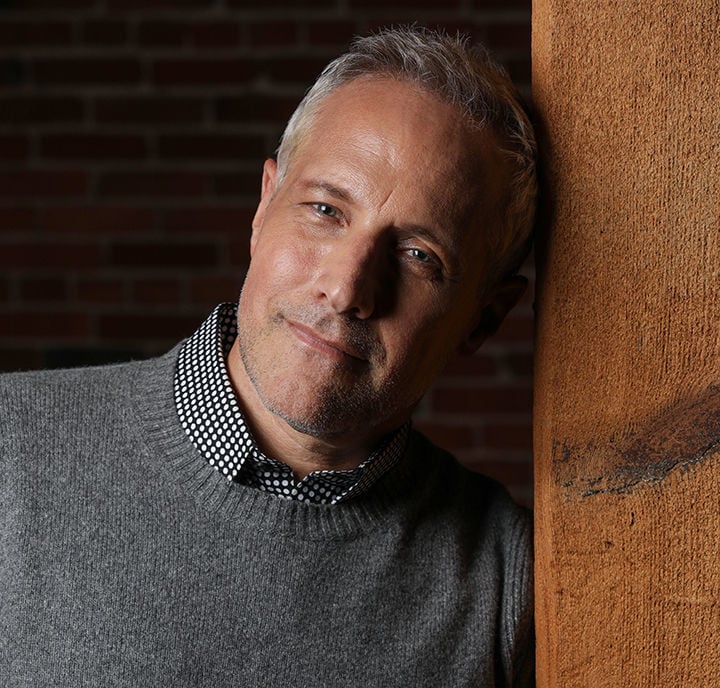Happy Birthday to the legendary Paul Simon, who celebrates his 81st birthday today (October 13th)!!! Although he's retired from touring, Simon had said prior to launching his 2018 farewell trek that he intended to continue to sporadically perform and donate the proceeds to charity -- preferably those focused on the environment.
Simon is working on a new album tentatively titled, The Seven Psalms, and was recently recording at Manhattan's Reservoir Studios. The news was broken via a Facebook post by singer Barbara Fasano, who was coincidentally also recording at the studio complex and tracking a cover of Simon & Garfunkel's 1968 standard, "Old Friends," which Simon contributed to. There's been no announcement regarding when Simon will release the new album.
This past July 23rd, Paul Simon played a surprise four-song set during the Newport Folk Festival. Simon appeared during a tribute set to him, led by Nathaniel Rateliff & The Night Sweats.
At various points, Simon was joined by Jerry Douglas on guitar, Rhiannon Giddens, Lucius, Rateliff, and Willie Nelson's son Lukas Nelson -- whom Simon introduced as "an old family friend." Simon performed "Graceland," "American Tune," and "The Boxer" before closing with a solo take on the Simon & Garfunkel standard, "The Sound Of Silence."
Last April, Simon was the latest artist to receive a massive Grammy salute. The tribute concert -- billed as Homeward Bound: A Grammy Salute To The Songs Of Paul Simon -- took place at L.A.'s Hollywood Pantages Theatre and will air later this year.
In addition to Simon, other performers included Brandi Carlile, Brad Paisley, Billy Porter, Little Big Town, Rhiannon Giddens, Dave Matthews, Angélique Kidjo, Shaggy, Irma Thomas, and Trombone Shorty.
In April 2021, Paul Simon sold his publishing rights to Sony Music Publishing, with the company purchasing "the total collection of his catalogue." No financial details were released regarding the deal. 2021 also saw the release of Simon's audio biography, Miracle And Wonder: Conversations With Paul Simon.
Back in February 2020, Paul Simon donated $1 million to fund the Paul Simon Music Fellows Program across the five boroughs in New York City. Simon donated his net proceeds from the final show of his farewell tour, when he returned to his hometown of Queens, playing Corona Park on September 22nd, 2018.
Rolling Stone posted, "Each year, the Paul Simon Music Fellows Program will partner 20 young music educators across the five boroughs of New York City with veteran teachers, who will provide mentorship and skills training over the course of a school year. Additionally, the program will help bring new 'artists-in-residence' to schools across the city for 11 weeks at a time. And Simon will be involved as well, curating appearances from special guest artists who will lead master classes for students."
In 2019, Simon and wife Edie Brickell's then-24-year-old daughter, Lulu Simon, released her self-titled debut album.
In 2018, Paul Simon released his latest studio album, In The Blue Light, which featured new recordings of songs from his back solo catalogue. The album, which was produced by Simon and legendary Simon & Garfunkel co-producer Roy Halee, takes its title from the opening line of Simon's 1980 song "How The Heart Approaches What It Yearns." High profile musicians on the set include jazz icons Wynton Marsalis, Bill Frisell, Steve Gadd and Jack DeJohnette, as well as New York-based modern chamber sextet yMusic.
Simon said in a statement officially announcing the project: "This album consists of songs that I thought were almost right, or were odd enough to be overlooked the first time around. Re-doing arrangements, harmonic structures, and lyrics that didn't make their meaning clear, gave me time to clarify in my own head what I wanted to say, or realize what I was thinking and make it more easily understood."
In 2018, Robert Hilburn's long awaited biography Paul Simon: The Life was published. The book was culled from Hilburn's years of covering Simon's life and music -- along with over 100 hours of recent and exclusive interviews with the singer-songwriter. Hillburn told us that he knew going in the book needed to serve several purposes: "I wanted him to be happy with it and I wanted history to be happy with it -- if that doesn't sound pretentious. I wanted to tell an honest story as if someone sat down with him and got to know him and learned his life -- this is what's there. I wasn't looking to sensationalize it, I had no particular agenda other than my curiosity and respect -- but that doesn't mean that I wanted to hide things. If something happened in his life that wasn't pleasant, I wanted to deal with it as hard as I could."
Paul Simon -- with partner Art Garfunkel -- was a major force during the 1960's, with Simon & Garfunkel bridging the gaps between folk, the British Invasion, and eventually the singer-songwriter movement. Paul Simon, whether recording as part of Simon & Garfunkel or on his own, is responsible for witting some of the most important and beloved music of all time -- including such classics as "The Sound Of Silence," "Homeward Bound," "I Am A Rock," "Kathy's Song," "America," "59th Street Bridge Song (Feelin' Groovy)," "Old Friends," "Bookends Theme," "Mrs. Robinson," "The Boxer," "Cecilia," "Bridge Over Troubled Water," "Mother And Child Reunion," "American Tune," "Loves Me Like A Rock," "Kodachrome," "Something So Right," "Late In The Evening," "Train In The Distance," "Hearts And Bones," "Slip Sliding Away," "Still Crazy After All These Years," "50 Ways To Leave Your Lover," "Diamonds On The Soles Of Her Shoes," "The Boy In The Bubble," "Graceland," "The Obvious Child," "Rewrite," and many, many more.
2017 saw a new career-spanning Simon retrospective run at L.A.'s Skirball Cultural Center. Paul Simon: Words & Music, which was on loan from Cleveland's Rock and Roll Hall of Fame & Museum, displays "more than 150 items -- scratch-pad notes, awards, the first jacket he wore on American Bandstand, and his first acoustic guitar -- a 13th birthday gift from his father, Louis, a professional bass player." Also included are countless photographs, original lyric sheets, and an interactive music lab.
Recently released on CD and DVD is Paul Simon - The Concert In Hyde Park. The set, taped at the British festival gig on July 16th, 2012, was performed in part in celebration of the then-25th anniversary of Simon's era-defining Graceland album, and featured many of the set's original musicians performing 10 of the Grammy-winning album's 11 songs. Among the guest stars contributing to the historic concert were reggae legend Jimmy Cliff, Ladysmith Black Mambazo, and Thandiswa Mazwai.
Simon's 2016 album, Stranger To Stranger, not only marked his best chart debut, entering the Billboard 200 albums chart at Number Three, but made for his highest charting album in 30 years. The last time Simon charted that high was in 1986 for the Grammy Award winning Graceland collection. Stranger To Stranger -- which topped the UK album charts -- sold 68,000 copies in its first week of release stateside and hit Number One on both Billboard's Top Rock Albums and Americana/Folk Albums charts.
In 2014 and '15, Simon paired up with Sting for a joint tour that took the pair through dates in North America, Europe, and Down Under.
Back in May 2015, Art Garfunkel slammed Paul Simon for continuing full force on his solo career, seemingly oblivious to both Garfunkel and their fans' pleas for yet another Simon & Garfunkel reunion, saying he had "created a monster" by befriending and supporting Simon while school kids back in Queens and referred to Simon alternately as a "jerk" and an "idiot" for splitting with him in 1971 at the peak of the duo's success. Garfunkel also went on to agree with the interviewer who suggested that the five-foot, three-inch Simon might suffer from a "Napoleon complex."
After that, during Garfunkel's chat with The Guardian, he once again touched upon his relationship with Simon, saying, "Paul Simon is a man who has enormously enriched my life, period. . . we've enriched each other's lives. What would have been his life if his friend Artie didn't sing so good and been so good and produced those records so good? What would it have been? Something smaller."
In 2016 Paul Simon reflected on his relationship with Art Garfunkel admitting to Billboard: "There's nothing much to say. It's just Artie. He's wrestling with his demons. That's him. It's his life. I'm sorry he's angry to that degree, at this point in life."
In 2020 Garfunkel addressed his and Simon's lack of a relationship, telling American Songwriter, "It's very sad that we don't talk, too. Some of his lines kill me. In 'The Sound Of Silence,' the fourth verse: 'Silence like a cancer grows.' We never speak these days, Paul and I. And yet he wrote, 'Silence like a cancer grows.' It's sad how true it was years later. 'Bridge Over Troubled Water' has these things: I'll be your friend when you're in trouble. Well, I'm in trouble now that I'm 78, Paul. If Paul is supposed to be my friend, give me a phone call, Paul. Read this American Songwriter interview and give me a phone call. . . It's been a while."
In June 2014, charges were dropped against Simon and his wife Edie Brickell following their minor physical altercation the previous April 26th, which led to their arrest on disorderly conduct charges at their home in New Canaan, Connecticut. According to the police reports, it was Simon who called 911 -- and hung up -- while Brickell was arguing with her mother, who was visiting from Texas. When police arrived they heard Brickell yelling inside a cottage, which is a separate music studio apart from the house, with Simon waiting outside.
Brickell, reportedly entered the cottage "to confront Simon on something which he'd done that broke her heart," and stated that Simon "cannot handle being criticized in any manner and became confrontational with her," and accused him of acting like a "spoiled baby." It was reported that Brickell had a "moderate odor of alcohol" on her breath.
The singer admitted that she had struck Simon, saying, "I didn't hit him. I slapped him." Simon who "suffered a small superficial cut on his ear as a result of the slap, admitted to shoving his wife and calling 911 after she slapped him." At their initial court appearance, Simon, who held hands with Brickell while walking into the courthouse and throughout their first appearance in front of the judge, told the court: "We had an argument, which is atypical of us. Neither of us has any fear or any reason to feel threatened. I don't feel like I need to be protected. Both of us are fine together. We're going home together, and we're going to watch our son play baseball."
PAUL SIMON HISTORY
Simon & Garfunkel became friends towards the end of elementary school, and by their mid-teens had recorded their debut single "Hey Schoolgirl" under the name Tom & Jerry. After Simon & Garfunkel's mid-'60s heyday and their split in 1970, Simon released the scaled-down acoustic-based Paul Simon album in 1972. Although it was a commercial success, it paled in comparison to the duo's sales.
Simon's solo works differed greatly from his work with Art Garfunkel, embracing many different types of music: New Orleans jazz and pop-gospel on the hit single "Loves Me Like A Rock," African music on the album Graceland, South American on The Rhythm Of The Saints, and salsa music for Broadway with 1997's The Capeman. He's tried his hand acting as well, appearing in Woody Allen's Annie Hall and in the semi-autobiographical film One Trick Pony.
Throughout the decades, Paul Simon has never taken for granted being able to move through his life and work with relative autonomy: "I can do whatever I want artistically in my work. My work is accepted to lesser or greater degrees. Some things, sometimes are very popular. Sometimes it's less popular -- but essentially, I mean, people are willing to listen, or watch, or read what it is that I make up."
Simon & Garfunkel have reunited various times over the years, most notably at New York's Central Park in 1981, after which they hit the road for an extended two-year tour. An ill-fated attempt at a studio reunion put their relationship on the skids, until their next series of shows in 1993 and then their eventual 2003/2004 Old Friends reunion tour.
In June 2010 Simon & Garfunkel announced that they would be indefinitely be postponing their joint summer tour due to Art Garfunkel's vocal cord paralysis.
Art Garfunkel admits that Simon & Garfunkel's combined talents are bigger than the both of them: "It delights us to see, when we try and combine, there's that third thing that's beyond the two of us, and there it is, bouncing against the walls, reverberating in the mic, this buzzy thing that is neither Paul nor Artie. We suddenly disappear as the people we are, and we become this Simon & Garfunkel thing."
Garfunkel told us that during Simon & Garfunkel's 2003-2004 Old Friends reunion tour, his relationship with Paul Simon deepened beyond just being colleagues and childhood buddies: "We are daddies. We are getting closer to our sense of mortality. We're Jews with a similar sense of humor who cherish many a past laugh and past experience. We're workaholics. We have fierce mutual respect of each other's musical sense. Neither of us fell asleep in life as human beings or as musical people."
In 2007, Simon's son Harper Simon and current wife Edie Brickell teamed up as a duo called the Heavy Circles and released their debut album. Although Harper Simon sounds nothing like his dad, he admits that they're alike in many ways -- including how they tend to write to a pre-recorded rhythm track: "Well there's a lot of similarities 'cause I've probably learned a lot, somewhat, watching him write growing up. He writes in a very specific way now. I mean, it changed, I think, for him. We both start with a track. I mean, he'll start with a rhythm track -- I mean, he'll just start with drums. Anyway, he builds a track up and then he writes the song over the track. That's how he writes now most of the time. As opposed to just sitting down on a guitar and writing it all out in one shot on guitar -- he doesn't do that."
We caught up with Paul Simon's good friend, former neighbor and touring partner Sting, who told us that he considers himself to be a pupil of Simon's work for a long time now. We asked him what type of impact Simon & Garfunkel's catalogue had on him as he was first starting to play music: "Huge. I mean, I was at school and I bought Bridge Over Troubled Water and I was fascinated by Paul's writing because he was literate, and a literary songwriter. I thought, 'That's what. . . that's what I'd like to be. That's what I'd like to gravitate to.' Y'know, I played folk clubs and I'd sing (Simon & Garfunkel's) (I Wish I Was) 'Richard Cory,' and so I know that material extremely well and never ever suspected that one day, I would know the man, or be on the same stage or tour with him. That would be beyond the bounds of fantasy. But, y'know, he's been one of my teachers for a long time -- and still is. I'm still learning from him."
Simon, like many of his peers, has learned to weather the dry periods that come with any multi-decade career: "If you're a musician, you just love to play music, and the generations change and no one wants to hear what you're playing, what do you do -- if that's what you do? It applied to a lot of people I knew -- even very, very big stars. Y'know, internationally known stars, who, y'know, like, don't make hits -- even though they still make records, don't make hits. And how do you adjust to that? And of course, y'know one does adjust to that -- I mean it's a part of as we say, growing up."
Paul Simon told us that he doesn't think too hard while writing his new material, instead letting things come about organically: "They come out the way the come out, I don't plan them. When I start a song, I don't know what it's going to be about, and my criterion is 'Did I say something that was true as far as I knew.' And that's all. And then try to make it sound interesting and maybe have a good rhythm so that people can feel rhythm while they're listening. Y'know, I think I'm a rhythm songwriter who doesn't write for dance."
During a recent chat with journalist Christine Amanpour, Paul Simon spoke candidly on the collapse of his and Art Garfunkel's friendship and the state of their partnership today: "There's too much damage that was done. Y'know, it's, like, somebody that I've known since I'm 11. So, I understand. I think I understand why it happened, but I think it's best to stay away. . . to stay away for safety sake -- and so I do. It just. . . It just. . . it doesn't work. What can I say? It doesn't work."
In 2019, the National Museum of American History awarded its signature honor -- the Great Americans Medal to Paul Simon. In a Q&A, Simon talked about the emotions behind giving up on touring: "My wife, Edie, said to me when I began the tour, she said, 'Look, since this is your last time -- be aware that people want to thank you for what you did and take it in. You should understand that people want to say that, and you want to be able to say back, 'thank you.'' It was special. I won't say it was, y'know, a real. . . emotional. I wasn't on the edge of tears, or anything -- but it was special."

